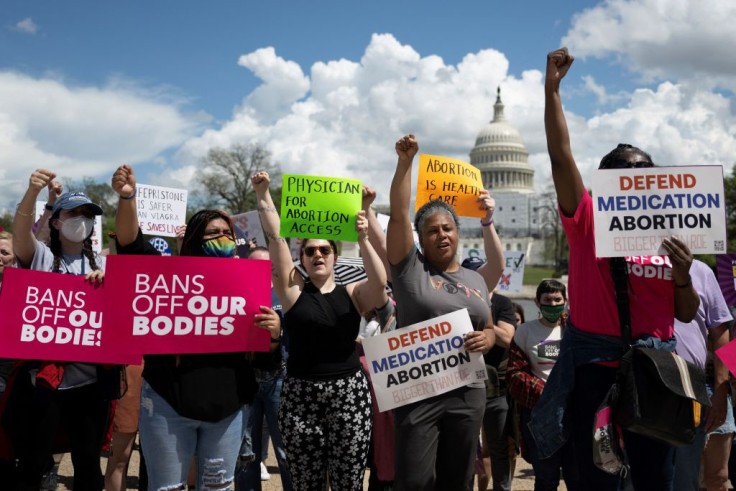
Abortion providers in Virginia, Montana, and Kansas have filed a lawsuit in federal court against the U.S. Food and Drug Administration (FDA) to preserve access to the abortion pill, Mifepristone.
The lawsuit aims to prevent the FDA from imposing restrictions on how the drug can be prescribed and to ensure that patients can continue to access it in these three states.
Abortion Providers Sue the FDA
The Associated Press reported that a new lawsuit was filed on Monday regarding Mifepristone, a decades-old pill that is a critical component of the two-drug medication abortion regimen used in the majority of abortions in the U.S.
The lawsuit aims to protect the FDA's long-standing approval of the drug, which has been jeopardized by another lawsuit in Texas currently making its way through the court system.
The abortion providers involved in the new lawsuit are located in Montana, Kansas, and Virginia and are fighting for access to Mifepristone.
They claim that the restrictions placed on the drug by the FDA are unnecessary, stigmatizing, and ultimately impede access to medication abortion.
They say that the requirements for prescriber certification and patient forms are burdensome and make it more difficult for women to access safe and effective abortion care.
They say that their patients require clarity around their continued provision of Mifepristone and that healthcare cannot simply be turned on and off at the whim of regulatory authorities.
The plaintiffs in the lawsuit include abortion providers in Virginia, Montana, and Kansas who are not parties to either the Texas or Washington cases, but are caught in the middle of the legal battle over Mifepristone.
These states have many lawmakers who are hostile to abortion access, and the providers are seeking to protect their patients' rights to choose.
Read Also: North Carolina Republicans Pass Bill Restricting Abortion Access to 12 Weeks, Sparking Controversy
Protecting the Access to Medicated Abortion
The abortion providers in Virginia, Montana, and Kansas are seeking a court order that would shield Mifepristone access in their states as the litigation over the drug proceeds.
According to the Center for Reproductive Rights, Rebecca Tong, the Co-Executive Director of Trust Women in Wichita, Kansas, has criticized recent attacks on Mifepristone's legal status, calling them nothing but bad politics.
She warns that restricted access to the drug will have significant consequences. Tong believes that all individuals should have access to a full range of medical care supported by science, regardless of their location.
Mifepristone is a medication that is approved by the FDA for use in medication abortion. It has been available since the year 2000 and has been used safely by almost 5 million patients across the United States.
Medication abortion is a non-surgical method of ending a pregnancy that involves taking two drugs-mifepristone and misoprostol-that work together to terminate the pregnancy.
This method of abortion is becoming increasingly popular and accounts for more than half of all abortions in the country.
Studies have consistently shown that mifepristone is a safe and effective medication when used in a two-drug abortion regimen.
Despite this, the FDA still places restrictions on the drug's use through a program called the Risk Evaluation and Mitigation Strategy (REMS).
These restrictions are considered outdated and medically unnecessary by many experts in the field.
According to Virginia Mercury, the providers who are suing include Whole Woman's Health Alliance and Whole Woman's Health of the Twin Cities, LLC.
They are joined by Blue Mountain Clinic and Helen Weems, a certified nurse practitioner who operates a sexual and reproductive health clinic in Montana.
Trust Women, which operates clinics in Wichita, Kansas, and Oklahoma City, Oklahoma, is also a plaintiff in the case.